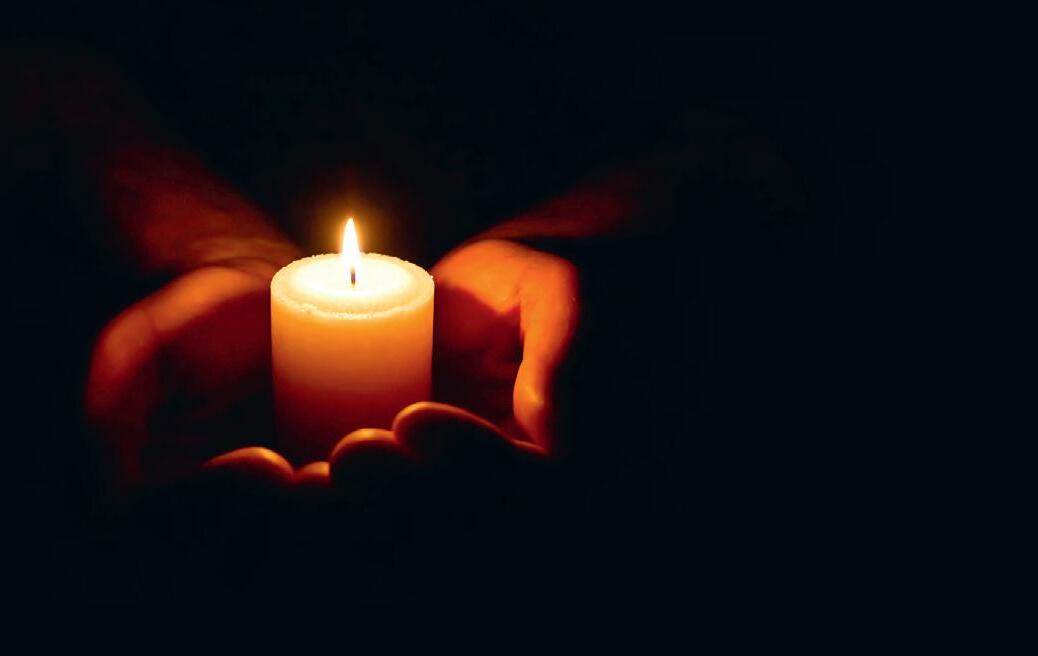
5 minute read
Shadows and lights: Music for Remembering and Reflection
Music has always served to complement and amplify the liturgy and the contours of the church year – perhaps never more so than as the days grow shorter and thoughts turn towards winter
By VICTORIA JOHNSON
In many ways music is always a form of time travel, connecting us to people and places of the past, the present and the future. It moves us from dust to glory, from death to resurrection; it gives us a glimpse of the heavenly realms and as well as expanding our imagination it also ministers to the heart. In this season of shadows and lights the music that accompanies the liturgies of the church carries upon its wings many contrasting emotions as autumn turns to winter.
As October tips into November we celebrate All Saints, perhaps by singing the jubilant Gaudent in coelis by Sally Beamish (2012) or a Litany for the Saints. Within twenty-four hours, we are remembering the souls of the faithful departed, who now rest on a different shore and in a greater light. We move on to Armistice Day and Remembrance Sunday with their solemn silence, melancholic sounds, Last Posts and Reveilles. St Cecilia, the patron saint of music, stands at the door as the liturgical year begins to close on the feast of Christ the King and we start to prepare for the dark blue skies and morning stars of Advent.
I want to take us through this quarter season, by reflecting on some of the music which has accompanied me on this journey as a singer and a priest, all of which has been written in the last fifteen years or so. We are part of a living and evolving tradition and though we delight in the music of our ancient forebears and its ability to speak into our post-modern condition, we can also cherish the music of the twenty-first century as it enlivens our history and weaves our present memories into an ever-expanding past.
REQUIEM AETERNAM
The form of the Requiem, a mass for remembering the dead, is a marker of this season. One would never want to take away from the beauty of the Fauré and Duruflé setting nor those by Victoria, Mozart and Verdi alongside them, but my mind was expanded when I sang Will Todd’s Requiem for Soprano, Electric Guitar and Choir (Tyalgum Press, 2008), originally commissioned for the Fairhaven Singers. It feels as if Todd is playing with fire as the soundworlds of choral music and a virtuosic rock guitar collide, but it is worth the leap into this unusual aural space. On Todd’s website it says that the Requiem was given five stars by Choir & Organ Magazine and an 18 certificate by Aled Jones. There is a rawness within this music and the portrayal of grief in its chaos and confusion, (the Dies Irae is spellbindingly dark), but there is also comfort, consolation, and a haunting and lyrical beauty which leads to peace as the soul is carried on angels’ wings into paradise. A more traditional take on the requiem is captured by Ghislaine Reece-Trapp in her In Paradisum – part of a collection of organ works Gregoriana (Stainer & Bell, 2022) inspired by Gregorian chant, curated by Anna Lapwood and most recently performed at the BBC Proms. This delicate piece elevates the same plainsong motif from the Duruflé In Paradisum and exemplifies in just a few minutes the layering of time and eternity through musical sound, carefully taking us to the peaceful resolution of all things, when death shall be no more.
In this season of shadows and lights the music that accompanies the liturgies of the church carries upon its wings many contrasting emotions as autumn turns to winter
IN A MIRROR DARKLY
The merging of musical memories is a speciality of Judith Bingham. If you’ve ever sung one of Bingham’s pieces in this genre you will have imbibed the harmonies of a choral classic as she has deconstructed and reworked them. There are ripples and flashes of light and moments of reminiscence as if looking from far out to sea back to the shore. For this season, I would choose The darkness is no darkness, and a recording by Voces8 (Winter, Decca, 2016), which elides perfectly into Samuel Sebastian Wesley’s Thou wilt keep him in perfect peace, the anthem which Bingham was pre-empting through this composition offers a response to Byrd’s interpretation of the same text which presents a rich choral texture to his polyphony and combines a byzantine soundworld with the Anglican and Catholic traditions which Byrd inhabited. The resolution of this piece again offers consolation, reassuring us finally that those ‘who sow in tears, shall reap in joy’.
BEFORE THE ENDING OF THE DAY
The contemplative nature of this time of year is encapsulated in the office of Compline, a form of night prayer when we reflect on the day that is past, lay down our sorrows and seek that peace that the world cannot give. In her Dusk Songs, Kerry Andrew uses the liturgical texts of Compline to chart the movement from dusk to eventide.
Commissioned for The Ebor Singers (Boreas, 2007), the antiphons, canticles and hymns of the night office are re-interpreted and can be sung as a cycle or used individually. The choristers of York Minster particularly love the Ambrosian hymn O lux beata Trinitas (OUP, New Horizons), a favourite at Evensong which shimmers with mystery and brings hope as night falls. Owain Park’s Phos Hilaron (Novello, 2018), based on the text of the ancient Christian hymn, finally offers the listener simple illumination as evening falls and lamps are lit. A single voice, like a candle in the dark, sings of Christ, the light of the world, who is the same, yesterday, today and forever.
VICTORIA JOHNSON
The Revd Canon Dr Victoria Johnson is the Canon Precentor of York Minster, and also writes about the arts and music.

